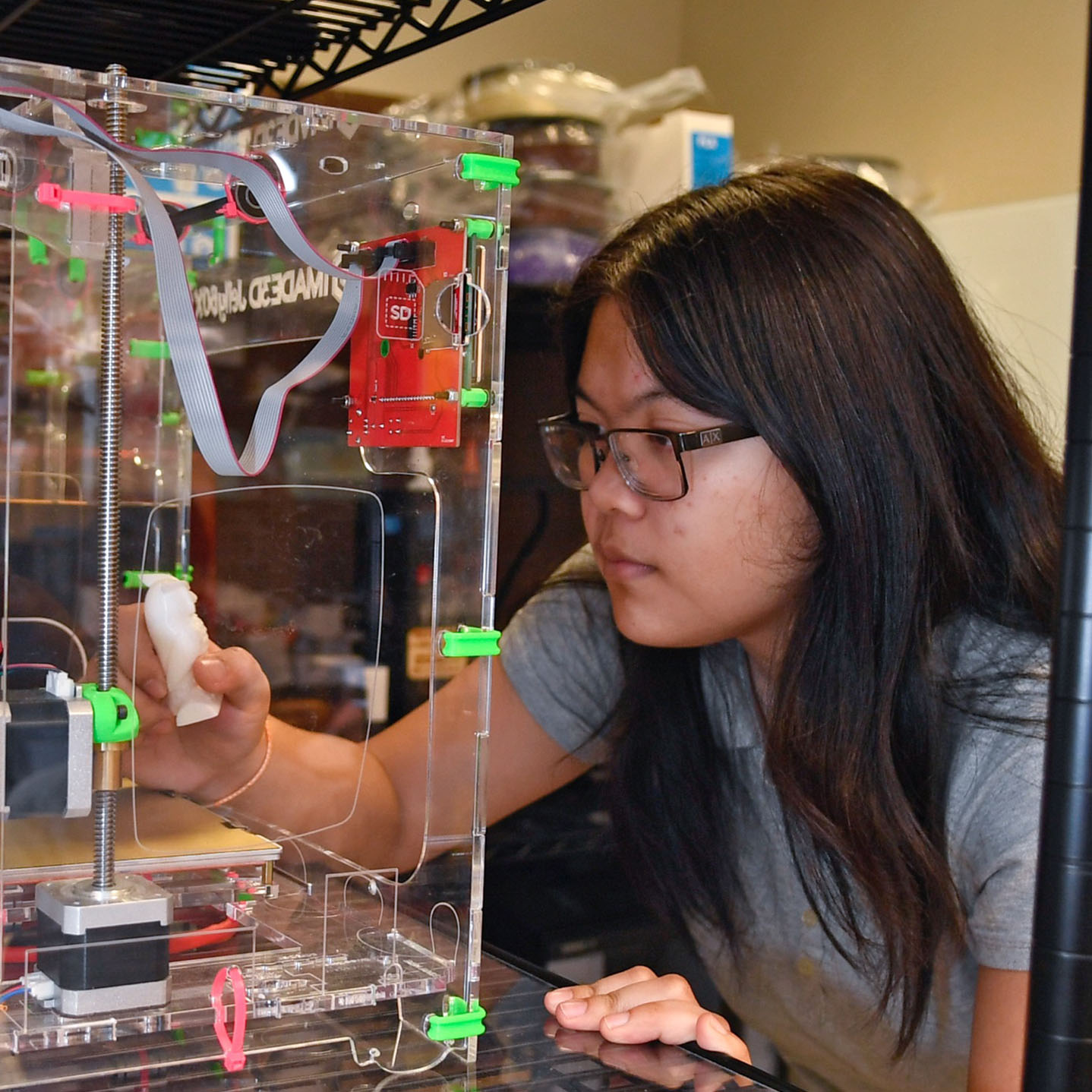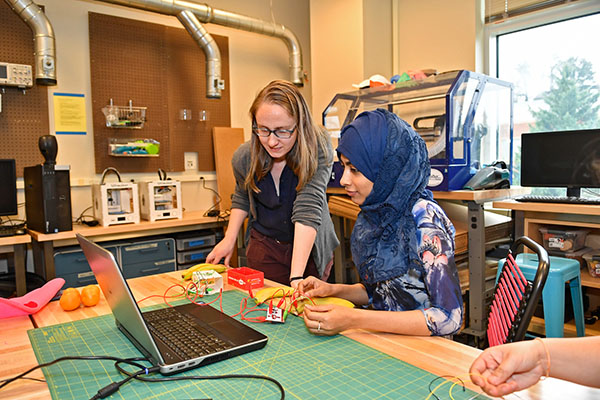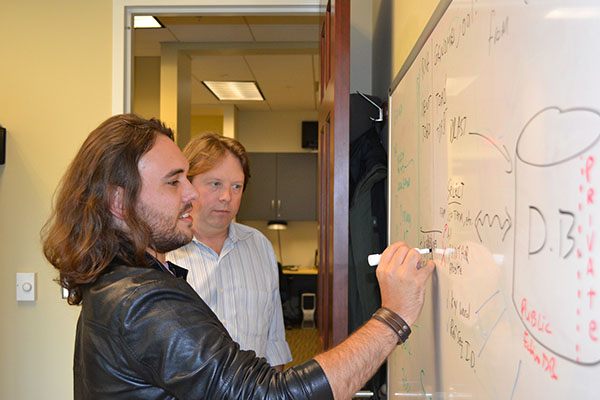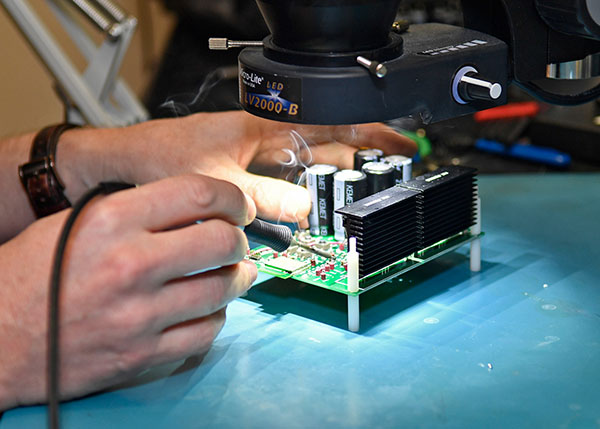National Center Of Computing Innovation
Government and the private sector funding delivers more than $12 billion a year to support science and technology development in North Carolina—making our state one of the nation’s centers for research, technology start-ups and STEM careers. UNC Charlotte’s College of Computing and Informatics provides critical knowledge and talent in Computer Science, Software and Information Systems, Bioinformatics and Genomics, Health Informatics, and Data Science and Business Analytics. Those degrees can lead to careers in top computer science concentrations: Artificial Intelligence and Robotics, Big Data Analysis, Computer-Aided Education, Bioinformatics and Cybersecurity. Interdisciplinary degrees in Architecture/Computer Science and Architecture/Information Technology prepare students for careers in emergent fields such as smart-building technologies.
Undergraduate Studies
Begin by mastering the broad computational thinking, programming, and problem-solving skills you’ll need to succeed as a computing professional in a range of emerging careers and industries. Then choose any one of seven computing concentrations: Bioinformatics (B.A. or B.S.); AI, Robotics, and Gaming (B.S.); Data Science, (B.S.); Software, Systems, and Networks, (B.S.); Cybersecurity, (B.S.); Human-Computer Interaction, (B.A.); Information Technology, (B.A.); Software Engineering, (B.S.); and Web and Mobile Applications, (B.S.).
Career Fields:
- Game Designer
- Level Designer
- Lead Animator
- User Interface Artist
- Environment Artist
- Game Programmer
- Game Engineer
- Audio Engineer
- Graphics Programmer
- Computer Game Producer
- Software Design Engineer
- Systems Designer
- Simulation Tester
- Project Manager
- Game Programmer/Physics
- Game Programmer/AI
- Game Programmer/Graphics
- Game Programmer/Sound
- Security Software Developer
- Security Analyst
- Intrusion Detection Analyst
Graduate Studies
Choose from four core graduate programs: (M.S.) in Computer Science, Cybersecurity, Information Technology, or Bioinformatics. In addition, two Dual Master's Degrees are offered: Architecture, (M.Arch.), and Information Technology, (M.S.), or Architecture, M.S., and Information Technology, (M.S.). We also offer a Professional Science Master's Degree in Data Science and Business Analytics (M.S.). Graduate certificates allow you to explore a variety of career paths without committing to a masters.
Career Fields:
- Artificial Intelligence Security Specialist
- Blockchain Engineer
- Chief Information Security Officer (CISO)
- Cryptographer
- Cyber Intelligence Specialist
- Cyber Operations Specialist
- Digital Forensics Analyst
- Security Engineer/Architect
- Intrusion Detection Analyst
- Cloud Security Architect
- Software Engineer
- Software Developer
- Front End Developer
- Data Engineer
- Machine Learning Engineer
- QA Engineer
- Robotics Engineer
- Embedded Software Engineer
- Programmer Analyst
- Application Security Engineer
Doctoral Programs
Choose from two Ph.D. programs. Bioinformatics and Computational Biology sits at the intersection of biology, chemistry, mathematics, and engineering. It prepares knowledgeable life scientists with quantitative and computational skills for academic and biotechnology sector careers. Computing and Information Systems trains Ph.D. students to carry out interdisciplinary research of societal relevance, centered on computing and informatics.
Career Fields:
- Bioinformatics Analyst/Computational Genomic Scientists
- Bioinformatics Data Architect
- Bioinformatics Scientist
- Bioinformatics Analyst
- Research Associate
- Principal Research Scientist
- Data Scientist/Bioinformatician
- Senior Director, Data Integration
Career Paths
Computing exists within nearly every aspect of life, commerce, transportation and living. Career paths in computer science reflect the growing role that networked computers and sensors—intelligent computing—plays at the site, system and societal level.
Game Development And Simulation
Many young people seek out jobs in a growing Game Development and Simulation industry in North Carolina. Companies such as Epic Games, Insomniac Games and Red Storm on the gaming side, and Lucid Dream and Crosscom in simulation, continue to grow North Carolina’s game and software development industry. More than 1,100 people in North Carolina are involved in creating video games, simulations and video game technology. The region hosts the annual East Coast Gaming Conference (ECGC), one of the largest gatherings of video game professionals.
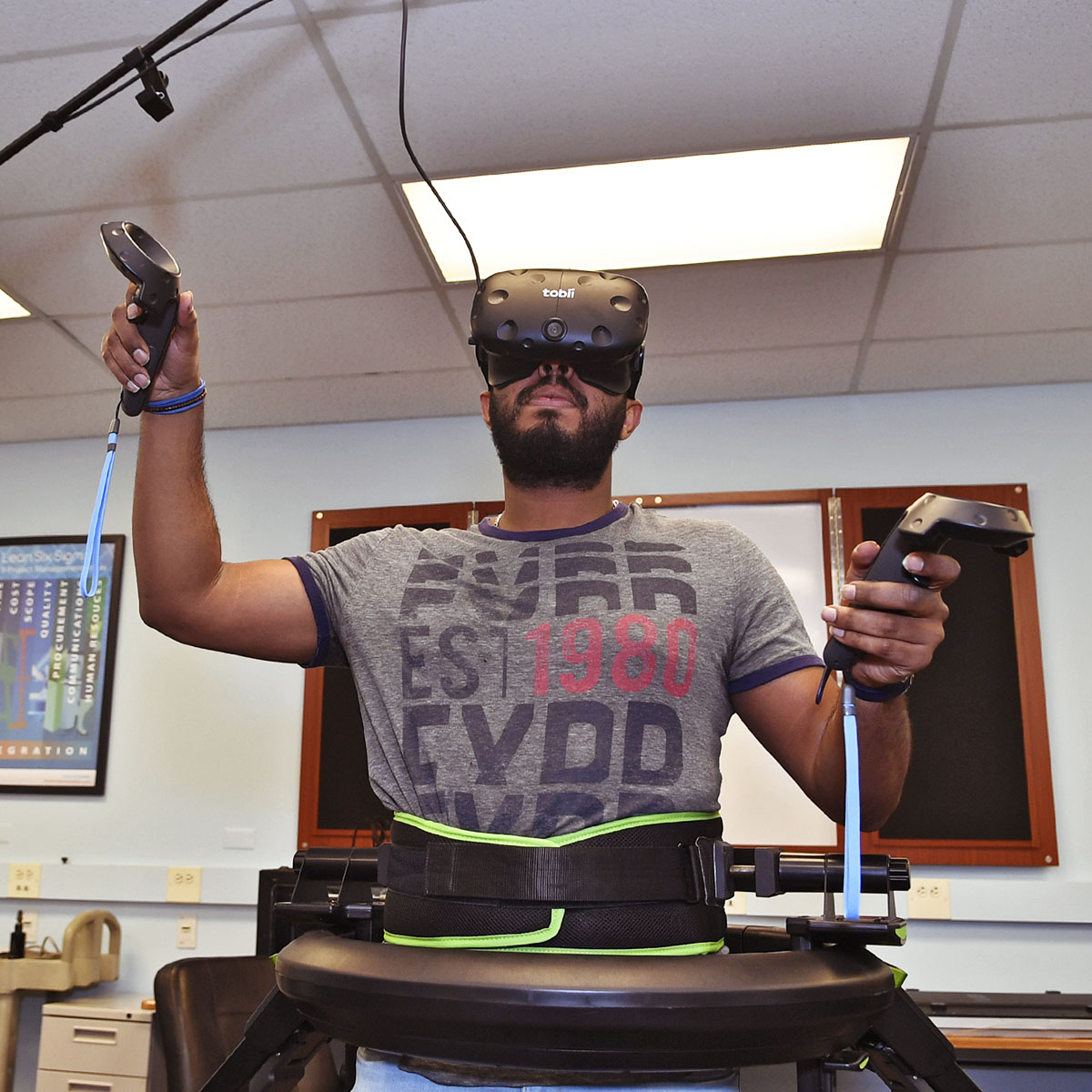
Cybersecurity
Information technology (IT)—including cybersecurity—employment in North Carolina expanded by 105,000 workers between 2010 and 2019 according to Cyberstates 2020 report. With the increasing footprint of networked businesses, embedded computers, and global conflict, the demand is increasing for individuals to help protect and monitor security measures against hackers and breaches. The website CIO Dive listed Charlotte, North Carolina as the best place for cybersecurity professionals to earn, with a cost of living adjusted income of $125,173.
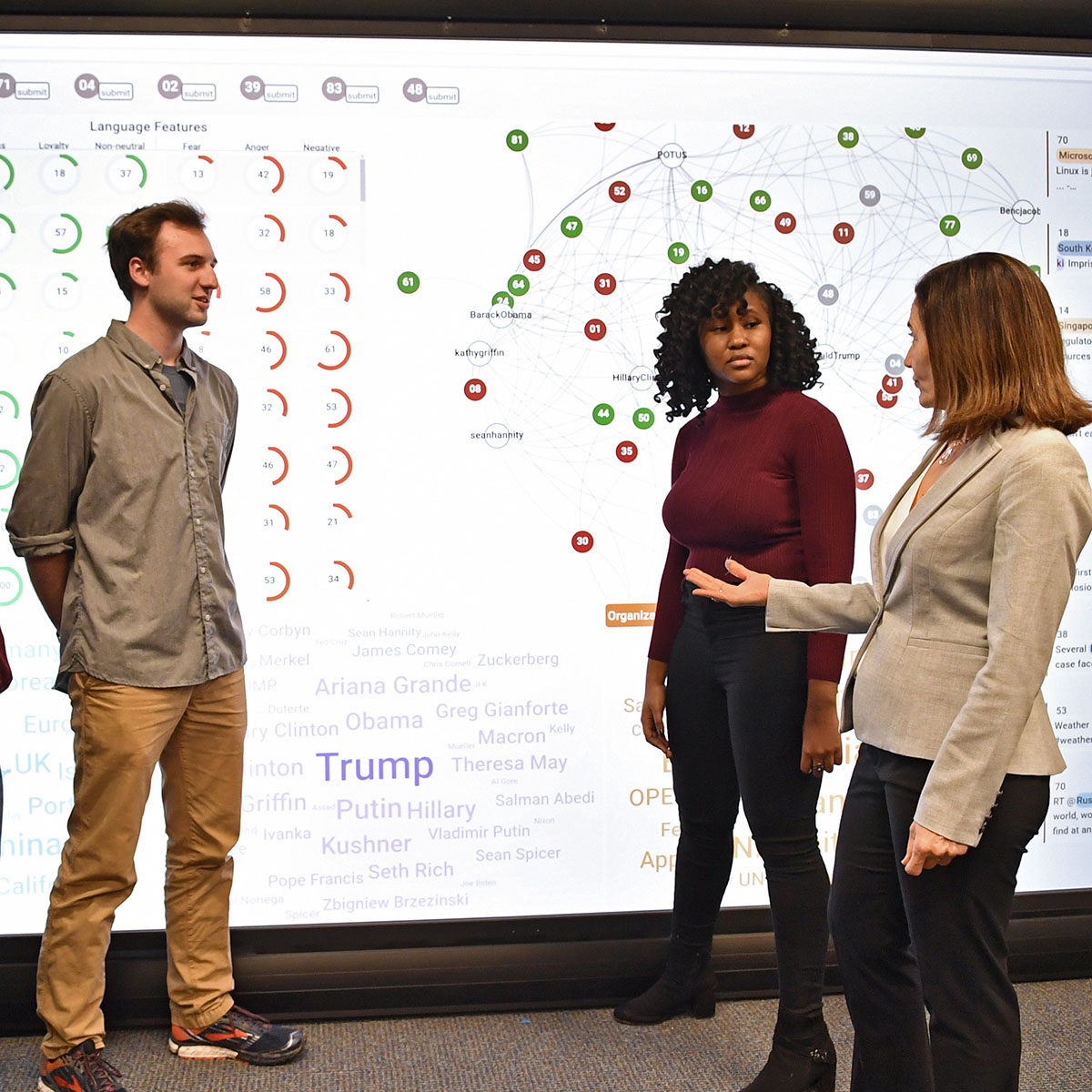
Software Engineering
Software engineers apply the principles of effective management of software teams. North Carolina continues to attract and launch software development companies such as Praxent, Digital Mettle, RoleModel Software, Skookum, Lithios and Castle Digital Partners. Because nearly all employment sectors rely on complex software solutions, software engineering is one of the fastest-growing occupations in the world.
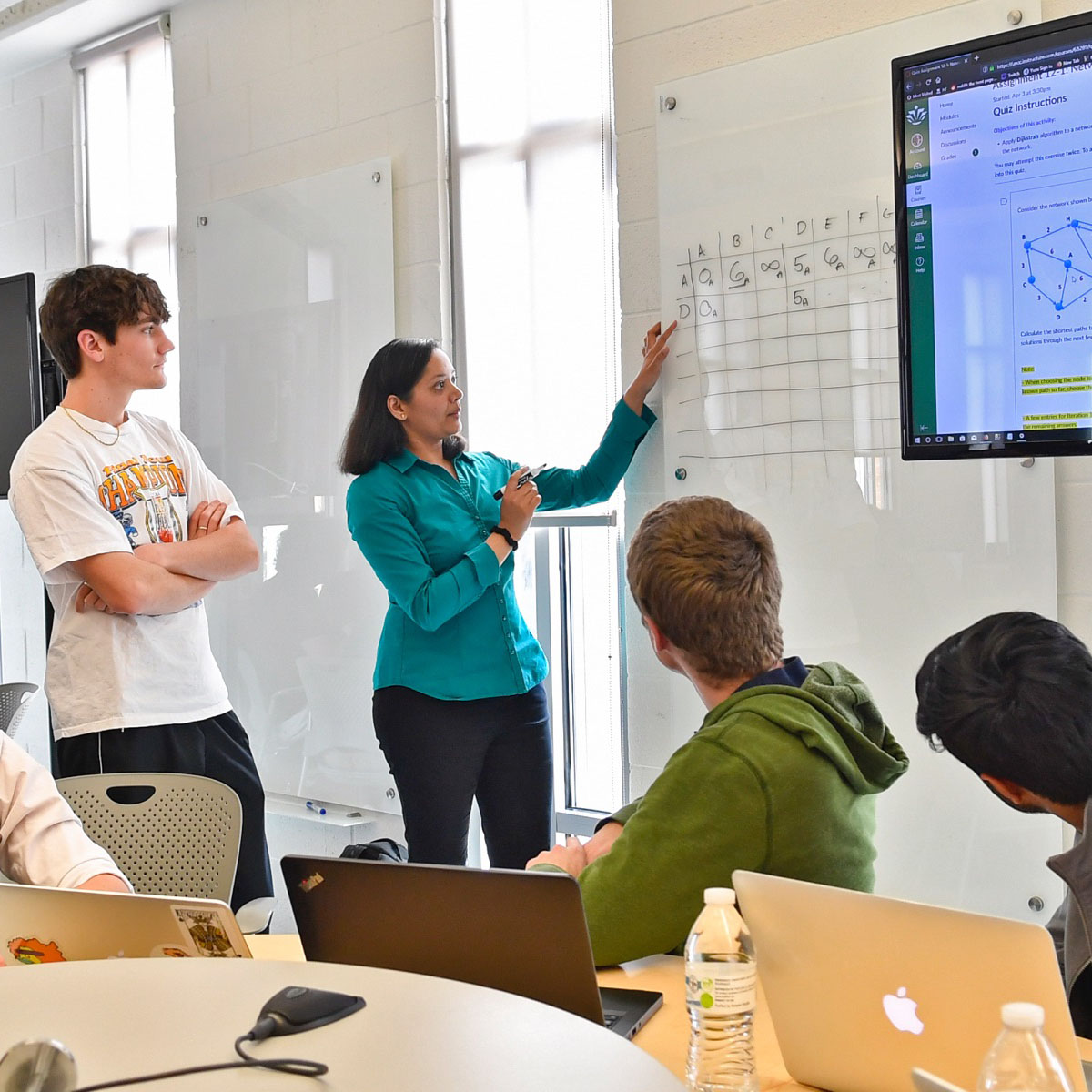
Research Centers & Institutes
UNC Charlotte’s College of Computing & Informatics supports a wide range of research centers and institutes that form the bedrock of North Carolina’s innovation economy.
Center for Configuration Analytics and Automation
Complex Systems Institute (CSI)
Robots and Sensors for Human Well-Being
The Bioinformatics Research Center (BRC)
Cyber Defense and Network Assurability Center
The Defense Computing Center
Powering North Carolina’s Innovation

-
#1Producer of CS Grads in North Carolina
-
#1Producer of Female CS Grads in North Carolina
-
#1Producer of Hispanic CS Grads in North Carolina
-
#2Game Development in North Carolina
-
>$10MComputer science research funding
-
20Years of Graduating Cybersecurity Talent
Career Outlook
According to the Bureau of Labor Statistics, the demand for computer and technology jobs is expected to increase by 12 percent from 2018-2028, which is faster than the average for all occupations. In May 2018, the median annual wage of computer and technology careers was $86,320, which is 123 percent higher than the median annual wage for all occupations. The average salary of a software developer in 2020 is $71,034, with the highest making $104K (PayScale).
Alumni Across the Carolinas
UNC Charlotte alumni live, work, teach and support communities throughout the state.

- Asheville, NC
- Charlotte, NC
- Concord, NC
- Durham, NC
- Fayetteville, NC
- Greensboro, NC
- Greenville, NC
- Jacksonville, NC
- Raleigh, NC
- Rocky Mount, NC
- Wilmington, NC
- Winston-Salem, NC

Ready To Create Change?
We’re looking for people who understand that the future of STEM is boundless at one of North Carolina’s top computer science and informatics colleges.

